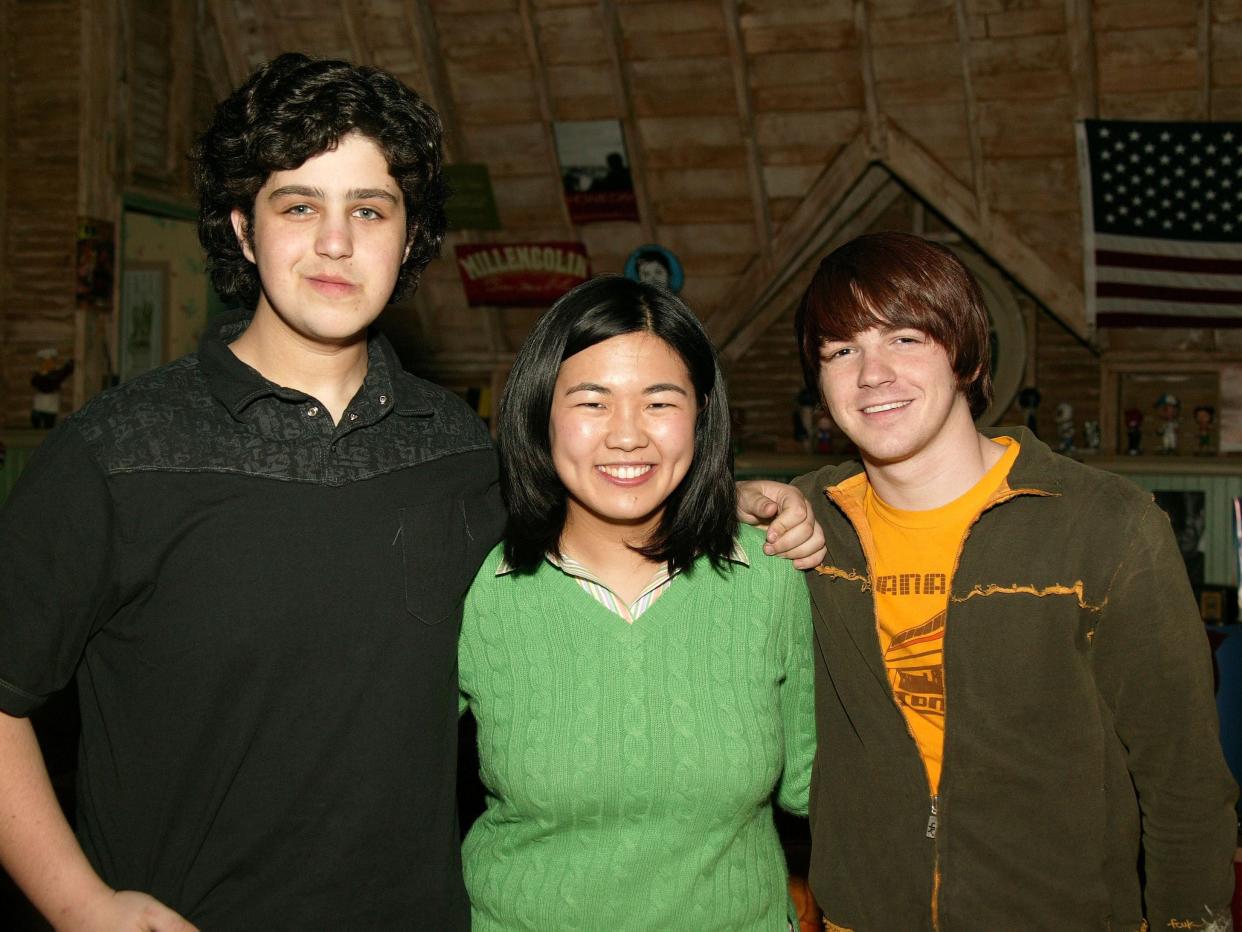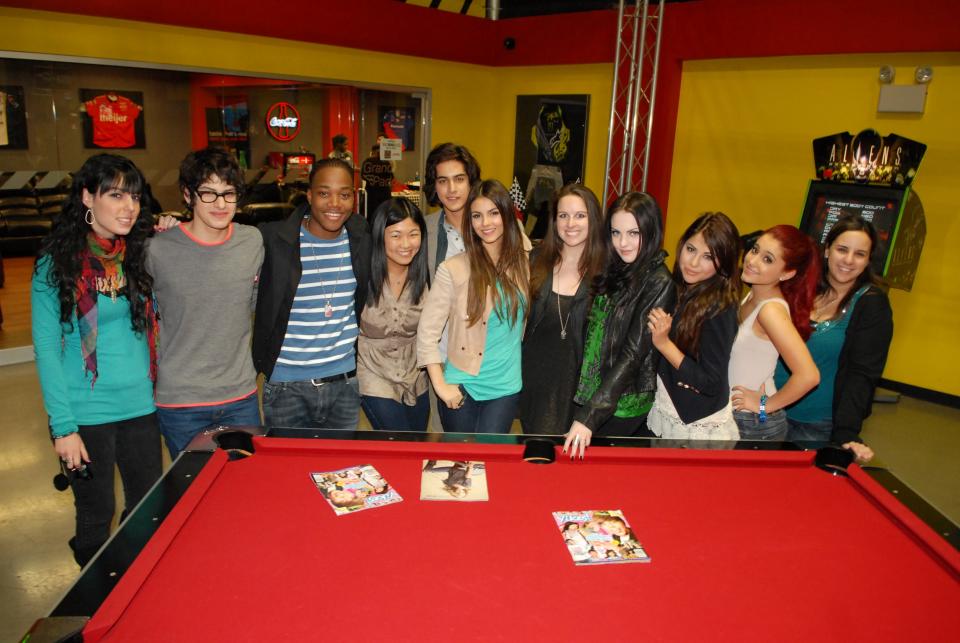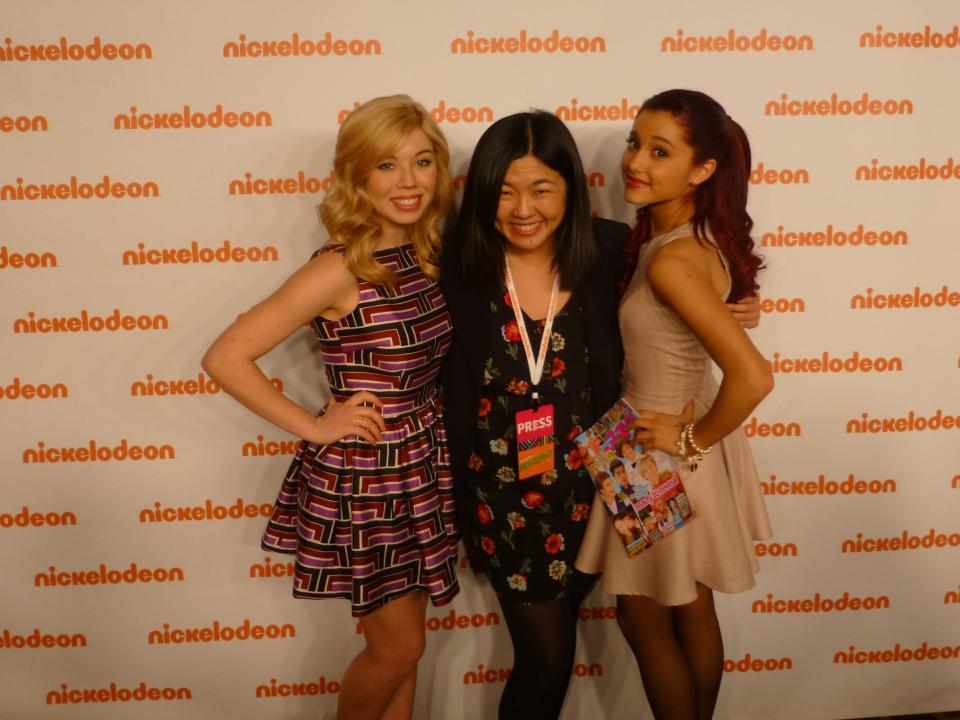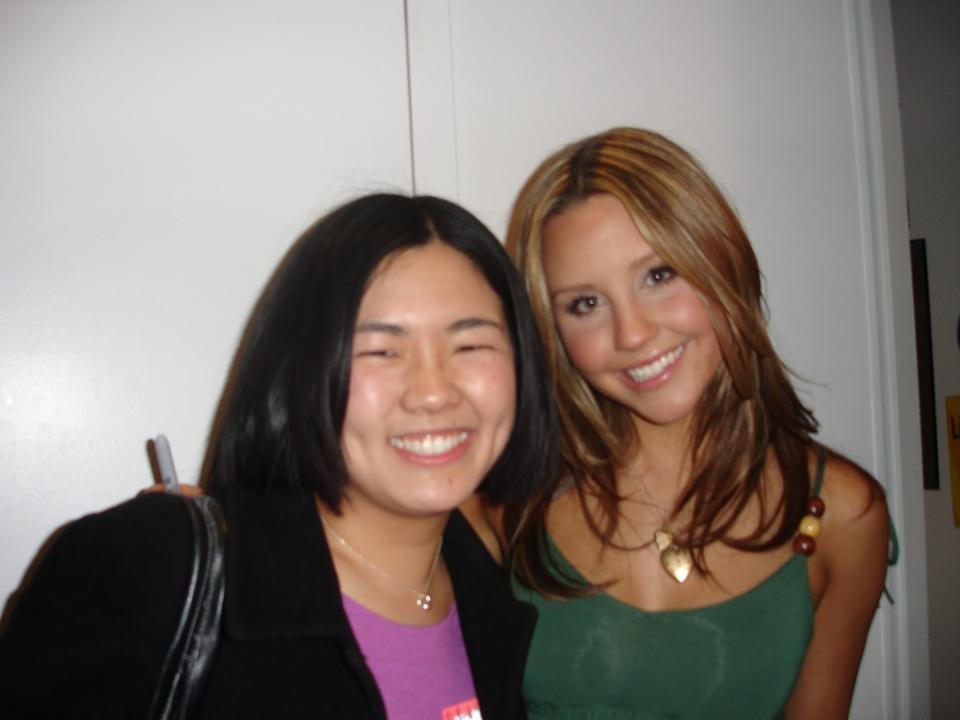I was a teen magazine editor during the golden age of Nickelodeon sitcoms. Watching 'Quiet on Set' made me feel guilty.

I was a teen magazine editor from 2003 to 2013, regularly interviewing child stars like Drake Bell.
The new docuseries "Quiet on Set" exposed dark truths about kids' entertainment during that time.
Now, I'm looking back on my career differently and I feel guilty.
I was at the top of the world in the 2000s and early 2010s: I had my dream job editing teen magazines like Popstar! and CosmoGIRL!, eventually becoming editor in chief of J-14.
I regularly traveled the globe to interview the hottest young stars, from visiting the set of "Drake & Josh" in Hollywood to bringing the "Victorious" cast to New Jersey for an afternoon of go-karting.
But watching ID's new documentary, based on Business Insider's reporting, "Quiet on Set: The Dark Side of Kids TV," made my heart sink.
As the docuseries dove into the toxic working environment and culture tweens and teens on kids' shows were facing throughout the 1990s and 2000s, my perspective shifted on what I thought was a bright time in my career.
While I was asking the child stars lighthearted, even flippant, questions about crushes and school, they were dealing with high-pressure — and sometimes unsafe — situations.
I feel guilty hearing all these heart-wrenching stories from the same time and place that had been such a highlight for me.
As the press, young stars had been trained to put their best face forward whenever I was around. But as a journalist, my job should've been to reveal the truth of what was happening behind the scenes.
For years, I practiced entertainment journalism with kid gloves and saw the rosy facade of being a young TV star

In our junior version of the celebrity universe, my job was to make teen icons feel relatable and cool to the readers. I'd ask them about school pressures, friend drama, heartbreaks, and zits but also about how cool it was to have an awesome job on TV.
Their job was to answer those questions in a way that felt natural and genuine, despite having been trained by publicists before being subjected to my questions. Then, they had to pose for magazine photoshoots with a bedroom-poster-worthy smile.
I was about a decade older than most of the celebrities I interviewed, so I'd been trained to treat everything sensitively with kid gloves. But when it came down to it, I was an adult stranger brought in to ask tweens about their personal lives, with the purpose of pulling stories out of them to put in print.
Without social media, the words they said to the press — recorded on old-school cassette tapes — and what we chose to publish became one of the few ways the world got to know these stars.
As an editor of a teen magazine, I held one of the keys to their public image. I didn't realize the power I had back then.
'Quiet on Set' made me feel guilty about my job

As I watched "Quiet on Set," my sense of guilt grew with every new revelation of mistreatment and abuse on the set of popular kids' TV shows.
I was trained to report and write in service of the readers, so I dutifully consumed feedback through letters from them. But what about the perspective of the teen stars whose names — and lives — we were actually using?
They were still growing, still figuring out the world while we were taking fleeting thoughts that would normally go in a private diary and immortalizing them in print.
I interviewed hundreds of young stars periodically as they worked on new projects. Only once did I hear directly from one of them that they were upset about anything being printed, and it was a quote about an inside joke they thought they told me off the record.
There was usually a layer of the TV network or personal publicists between me and the stars, so I was never privy to their reactions to what was written.
I don't know if I made any bad situation worse by doing my job — and young stars probably didn't feel like they had the power to tell me if I was.

It was hard to watch actor Drake Bell on "Quiet on Set" recounting the truth he'd locked away for more than 20 years: That at 15, he was sexually abused by dialogue coach Brian Peck in the most "brutal" of ways, as he described on the documentary.
After watching, I looked through my files and found a transcript from when I visited the "Drake & Josh" set in January 2005.
Our interview, like many others I'd had with Bell, was light. He joked about a trip to the Grand Canyon and spoke about having to eat a gross mixture of food on "The Amanda Show" during filming. No serious topics came up — and I kept on script with my fun-wheeling questions.
Now, I know that interview was just a few months after Bell walked into a courtroom full of Hollywood heavyweights there to support his abuser, who was arrested in 2003 on 11 counts related to child sex abuse and sentenced in 2004.
I'm not sure if young stars should be allowed to be interviewed at all
I've now watched "Quiet on Set" several times.
Looking back at what was such an innocently exciting decade of my career with this newfound perspective, I can't help but wonder why it was so essential to push these young actors, who were already dealing with so much pressure from their burgeoning stardom, even more.
Sometimes publicists told me they wanted me to give the child stars practice with the press, knowing I wouldn't step over the lines since I asked questions appropriate for teen magazines.
But it can be said that many questions could cross a line when you're talking to a kid.
Had the questions I'd been asking hurt anyone in ways I was unaware of? If I'd asked the right questions, would some of the dark truths of the industry have been exposed — and changed — earlier?
Maybe if I'd taken off my teen-magazine rose-colored glasses and looked closer, I would've seen the darker world bubbling under the perfectly crafted surface built for me to document.
Read the original article on Business Insider


